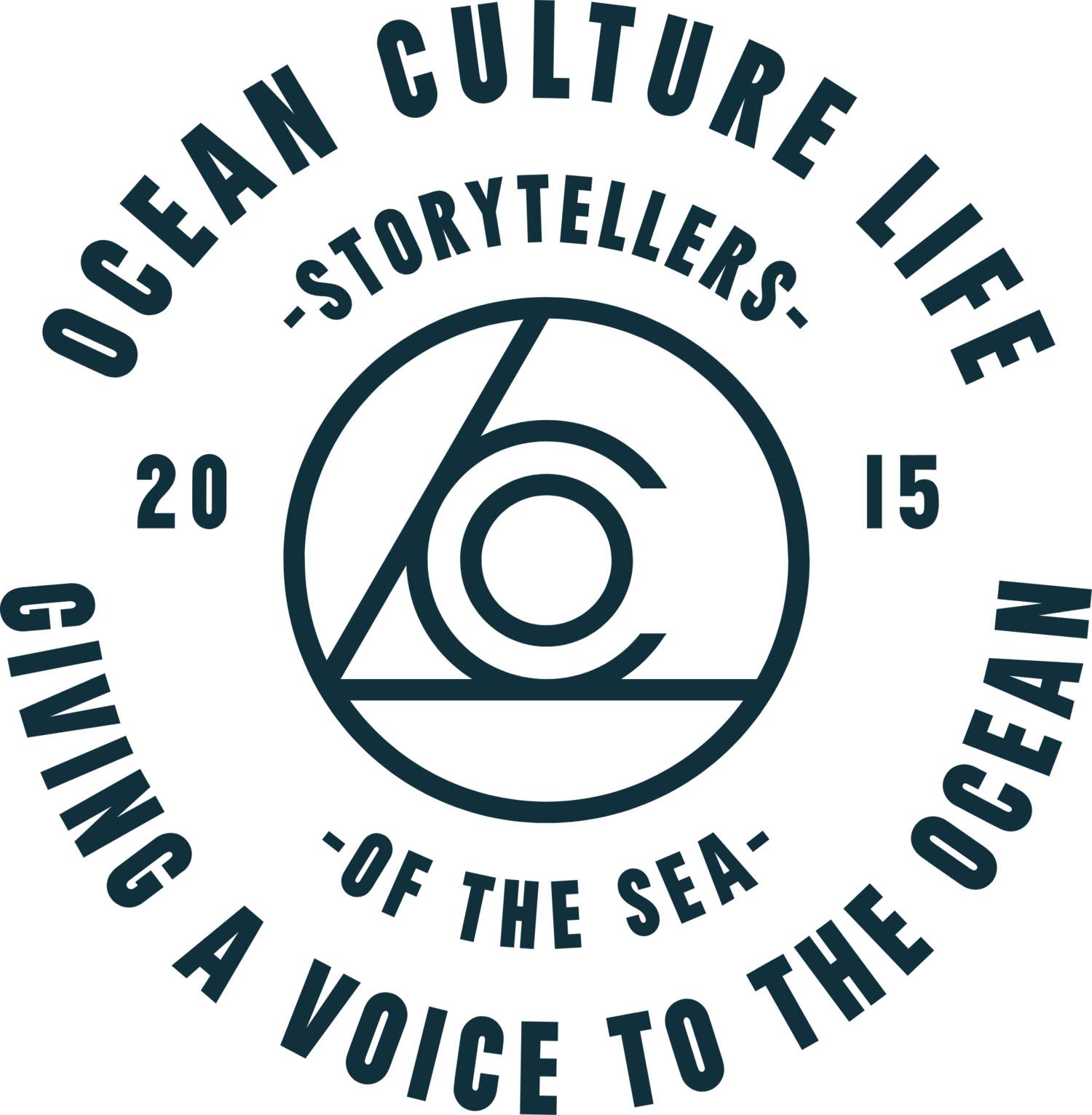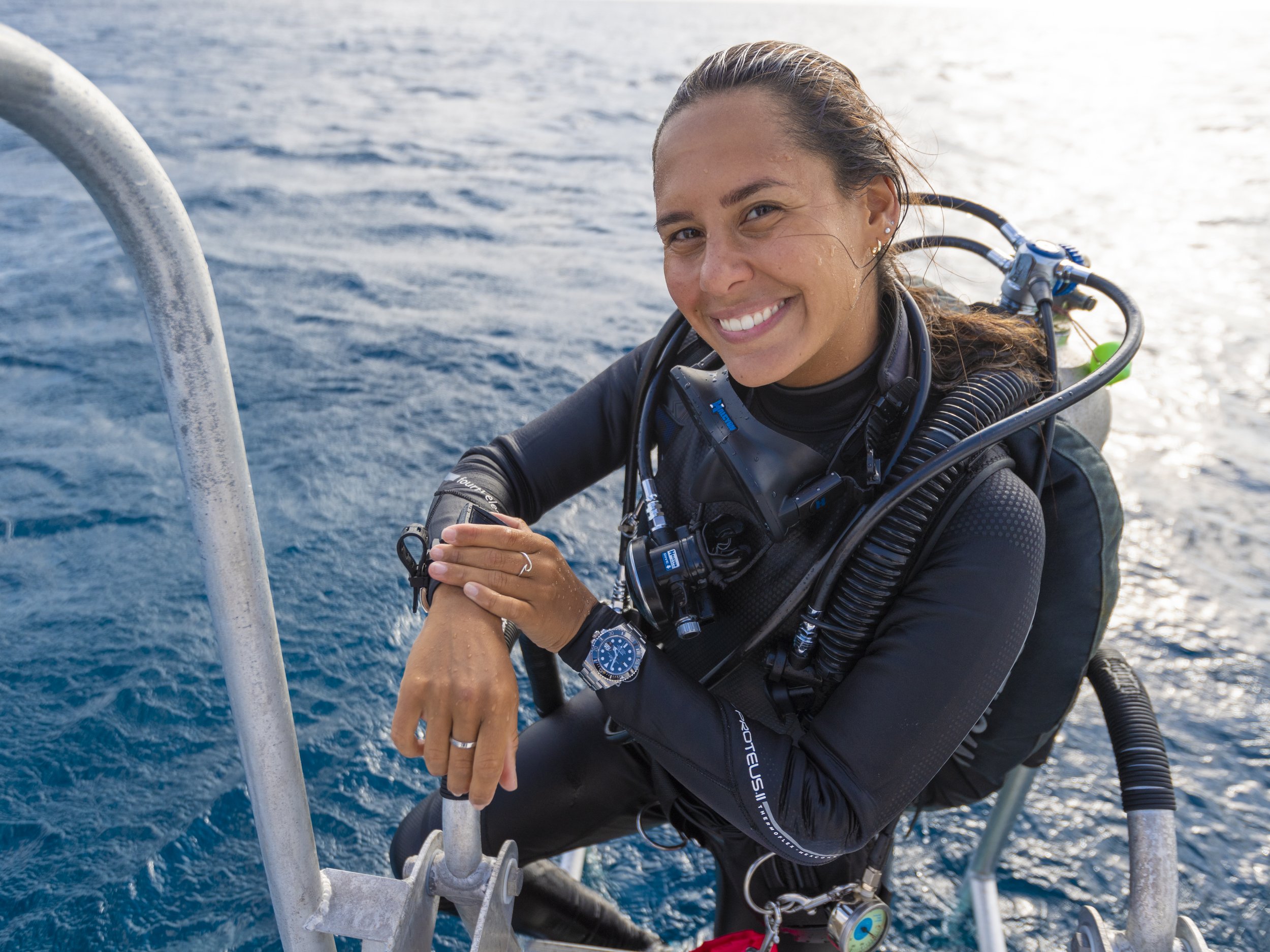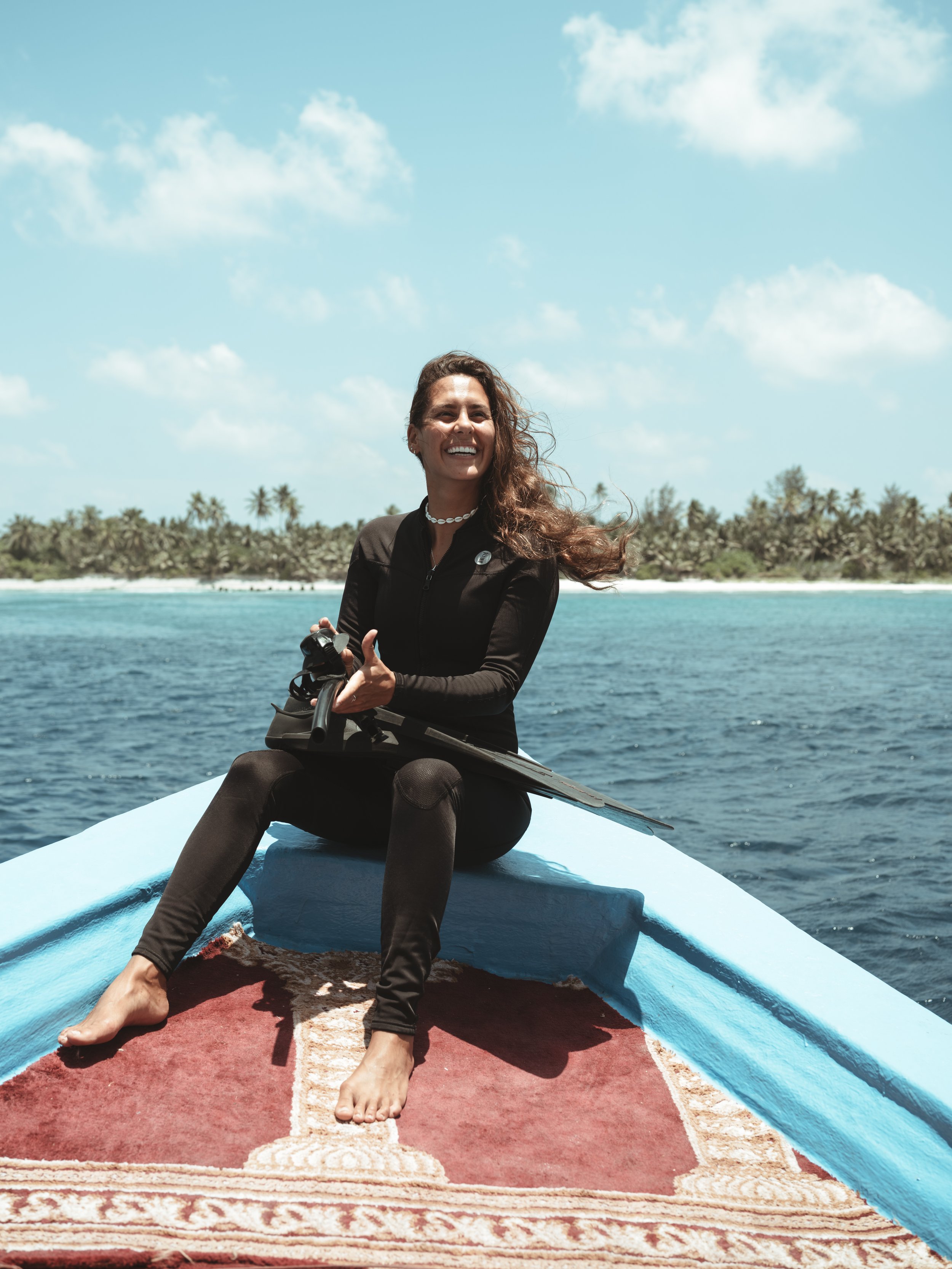Arzucan Askin | Underwater Photographer | Tech Diver | Marine Conservation Scientist | Sailor | Indonesia
Raised around the world and now based in Indonesia, Arzucan is a German-Turkish marine conservation scientist, technical diver, and sailor, specialising in remote expeditions with a focus on conservation research and media projects underwater.
With an MSc in Biodiversity, Conservation, and Management, and Co-Founder of the Miyaru Programme, Arzucan currently studies and documents the impacts of human activities on our oceans and sharks. She was awarded a National Geographer Explorer Grant for her efforts to establish the Fuvahmulah Shark Project in the Maldives and conduct research on the largely unstudied populations of sharks.
Her scientific research has taken her across the globe, and we can’t wait to see where Arzucan’s next wildlife expedition takes her.
What are the fondest memories from your upbringing that you feel impacted your life choices and lifestyle today?
I spent my childhood summers on the Mediterranean coast of Turkey, watching loggerhead sea turtles, sailing the Mediterranean, and playing in seagrass meadows.
I first learned scuba diving after observing a group of underwater archaeologists retrieve ancient amphoras from a Greek merchant ship, and I have been deeply fascinated by the intersection of oceans and human society ever since.
These core memories have catalysed a scientific journey that has taken me across the globe to study the different ways people impact marine ecosystems, from the monitoring of coral reef health in the waters of Hong Kong, the tracking of illegal fishing activities in Malaysia, ghost gear removal from wrecks in Turkey and assessment of tourism impacts on whale sharks in the Maldives all the way to acoustic monitoring of blue whales in uncharted Arctic waters.
What are you doing in or around the ocean?
Scuba diver, freediver, conservation scientist, technical diver, and sailor.
What/who currently inspires you?
The individuals who work tirelessly on the ground to ensure a better future for our oceans and marine wildlife:
The local tour operator in Indonesia who is donating a portion of his salary to fishermen, so they don't fish sharks, the Maldivian divemasters who show the world what co-existence with these apex predators truly looks like, the scientists sleeping on cold floors ready for fieldwork before sunrise, the sailors that brave uncharted waters to gather critical information on understudied Arctic whales that will fall victim to shipping traffic, the Greek mothers who take their children to swimming lessons even though they have never gone beyond where their feet can touch the ground, the activists risking their lives to prevent illegal fishing on the high seas.
I am inspired by the do-ers, by those who push for change no matter how difficult it may be sometimes.
What path did you choose after leaving school?
Even during school, I chose what some people refer to as an “unconventional” path into the world of ocean science. I decided not to study marine biology in my undergraduate degree because I always felt that in the Age of the Anthropocene, where human impacts have even been documented at the bottom of the Mariana trench, ocean conservation is less of an ecological or biological question anymore.
Right now, we need people supporting marine protection through legal, political, social, and economic interventions. I pursued a BA degree in Human Geography at the London School of Economics and Political Science where I specialised exactly in these topics, taking a “human” approach to the ocean, then completed my MSC in Biodiversity, Conservation, and Management, where I focused on marine conservation.
Often, people confuse marine biology with conservation, but there is a big difference between the two. Marine biology is the study of marine organisms, their behaviours, and their interactions with the environment. Conservation science on the other hand is the study of the (human) processes that affect the presence, loss, and restoration of species and ecosystems, including their protection.
After University, I spent a year travelling around the world and conducting advanced dive training and field research at sea, supported by a grant from Rolex. It was an incredible year that allowed me to support research from the Arctic to the Equator.
I had the opportunity to support research on blue whales in uncharted waters in the polar circle with Barba Norway, research endangered oceanic manta rays in the Maldives with the Manta Trust, and much more! During that year I also became a fully qualified Extended Range Trimix CCR Diver and am now able to stay underwater for more than 3h at a time and dive beyond recreational limits.
Injury in whale sharks - by Maldives Whale Shark Research Programme
What do you value most in life?
Community. Family, friends, colleagues, and partners. People who come together and support each other for both the small things and the big things. Whether it be a shared breakfast on a Sunday morning or a big ground-breaking research project across national borders and scientific disciplines, the community is what makes the difference. We need more of it, especially if we seek to meaningfully protect the ocean.
The scientific community is very fragmented at the moment, despite many efforts to bridge disciplinary boundaries and conduct collaborative research. The same issue exists at the international level where we see many nations unable to come to an agreement about the current treaty being drafted for the high seas… and many more.
What would you most like to change in the world/environment today?
Our global food system is the primary driver of biodiversity loss, with agriculture alone being the identified threat to 24,000 of the 28,000 (86%) species at risk of extinction according to a recent UNEP report.
However, it is not just biodiversity that is suffering. The current global food system also has grave environmental justice and development implications. As many as 828 million people go to bed hungry every night, according to the Food and Agriculture Organisation. The number of those facing acute food insecurity has soared - from 135 million to 345 million - since 2019. At the same time, about 30 to 50% of the food produced rots on the fields or in landfills, resulting in wasted water and energy and excessive production of greenhouse gases.
A paper published last year by Pacoureau and his colleagues found that since 1970, the global abundance of oceanic sharks and rays has declined by 71% owing to an 18-fold increase in relative fishing pressure.
It is time we change our global food system to ensure equal access and distribution of food resources, while ensuring that we do not extract more than can be replenished.
What brings you the most joy?
Being underwater. Nothing compares to it. The freedom, the serenity, the excitement of being surrounded by blue and by marine life. Every time I enter the ocean, I enter a different world. A world of wonder.
What advice would you give to anyone looking to follow their dreams?
My mom always said, “If you can dream it, then you can do it. If it was impossible, your mind would not be able to think of it.” That has stuck with me over the years, and it is something I always share with my friends when they feel like giving up on a dream, and something my partner reminds me of when I sometimes hit a roadblock. I also firmly believe that Dreams + Action + Time = Reality.
If you have a dream, write down the steps required to turn that dream into reality. Then make a timeline outlining how long each step will take. Then take those steps and be patient with yourself as you embark on this journey. Don’t let missing skills stop you. Skills can be acquired. Don’t compare yourself and your growth with others, we all start from different baselines and are different people. Build a community and circle of friends that support you and believe in you. That makes the biggest difference.









